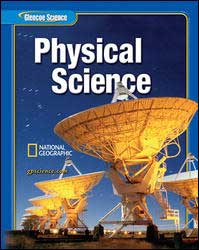

Physical Science, New York EditionChapter 6: Thermal EnergySelf-Check Quiz.-Eng. |  |
 | ||||||||||||||||||||||||||||||||||||||||||

| ||||||||||||||||||||||||||||||||||||||||||



Textbook Resources
Unit Resources
Chapter Activities



Teacher
Student
Textbook Resources
Unit Resources
Teacher
Student
Chapter Activities
Student

  | |||||||||||||||||||||||||||||||||||||||||||||||||
Please read our Terms of Use and Privacy Policy before you explore our Web site. To report a technical problem with this Web site, please contact the Web Producer. | |||||||||||||||||||||||||||||||||||||||||||||||||


